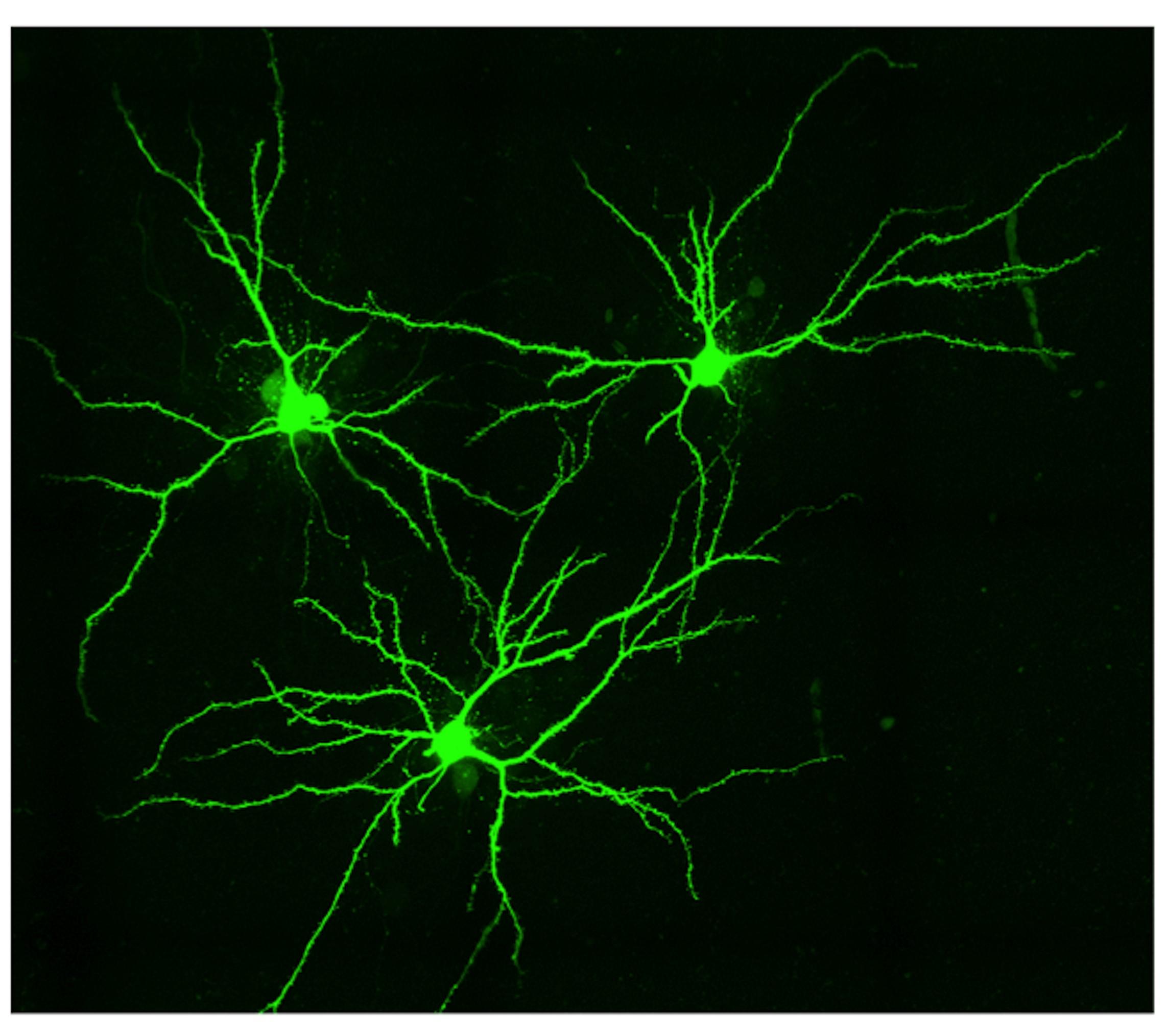Abstract:
The neglect of female subjects in the field of neuroscience has led to fundamental gaps in our understanding of core circuits that drive behavior. For example, Pavlovian fear conditioning has been a cornerstone for the study of aversive learning and memory, but its development and validation in males and reliance on a singular measure of fear (freezing) limits our ability to assess the broader repertoire of defensive behaviors that animals might use. We have found that females are more likely than males to engage in a conditioned escape-like response (“darting”), which may represent an adaptive strategy that provides long-term benefits. To determine the neural basis of this response, we have begun to explore the role that the prefrontal cortex plays in mediating a switch between freezing and darting. I will discuss our emerging data as well as big picture issues related to studying both sexes in the laboratory.

These are amygdala neurons that are filled with fluorescent dye so that we can analyze neural structure in 3D.
Biography:
Rebecca Shansky is a neuroscientist and professor of Psychology at Northeastern University, where she directs the Laboratory of Neuroanatomy and Behavior. Before joining the faculty at Northeastern, she earned her Ph.D. in Neurobiology from Yale University, and conducted postdoctoral work at Rockefeller University, New York University, and the Mount Sinai School of Medicine. Her research explores the links between brain structure and function, focusing on how individual differences in response to trauma shape long-term memories. She is a vocal advocate for gender and sex equity in experimental design.
No need to book, just turn up!
